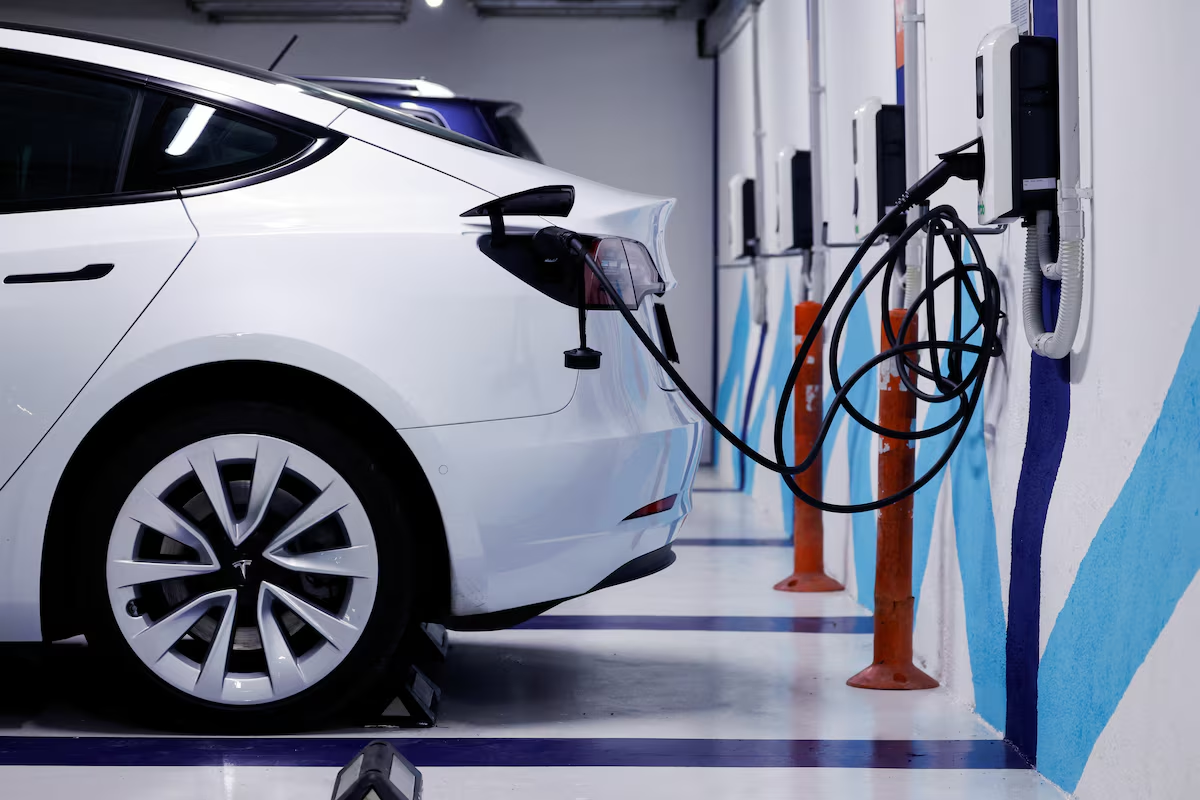This information was outlined in a letter to Ursula von der Leyen, President of the European Commission, on 27/8, ahead of a September meeting with automotive CEOs concerning the dual threat of Chinese electric vehicle pressure and US tariffs.
Ola Kaellenius, CEO of Mercedes-Benz, and Matthias Zink, CEO of the automotive technologies division at Schaeffler AG, stated that the European automotive industry is being forced into an electric vehicle transition with rigid targets while being "handcuffed" by external pressures.
Kaellenius is also the President of the European Automobile Manufacturers' Association (ACEA), while Zink is the President of CLEPA (European Association of Automotive Suppliers).
 |
An electric vehicle charges in Bilbao, Spain, on 15/2/2023. Photo: Reuters |
An electric vehicle charges in Bilbao, Spain, on 15/2/2023. Photo: Reuters
Manufacturers argue that threats from the US and China render the European Union's (EU) ambitious emission targets unachievable.
The EU aims for Net Zero emissions by 2050. The automotive sector is bound by strict CO2 emission regulations. By 2030, this sector must reduce emissions by 55% for passenger cars and 50% for trucks (compared to 2021 baseline levels), aiming for exclusively zero-emission vehicle sales, namely electric vehicles, by 2035.
However, electric vehicles currently hold about a 15% market share of new EU vehicles, and electric trucks hold about 9%.
European car and component manufacturers argue that they are almost entirely dependent on Asia for batteries. They also face challenges from uneven charging infrastructure and higher production costs, now further burdened by US tariffs.
Kaellenius and Zink emphasized that regulations and penalties will not accelerate the transition. Instead, they recommend the EU remain open to non-electric vehicles, including gasoline cars.
Regarding plug-in hybrid electric vehicles (PHEVs), the two associations argue that the EU should not tighten existing regulations that mandate a minimum electric-only driving range. They propose removing this "utility factor," as it is key to preventing Chinese competitors from gaining an advantage over European models.
They added that the EU should expand purchase incentives, streamline procedures, and support investments in the supply chains for batteries, semiconductors, and crucial raw materials. The two representatives also suggest reviewing CO2 emission targets for heavy-duty trucks and buses.
Previously, the Mercedes CEO criticized the potential "collapse" of the European car market if gasoline cars are banned by 2035. He suggested the EU might reach a dead end by setting targets not based on practical verification.
Bao Bao (Inside EVs, Reuters)












